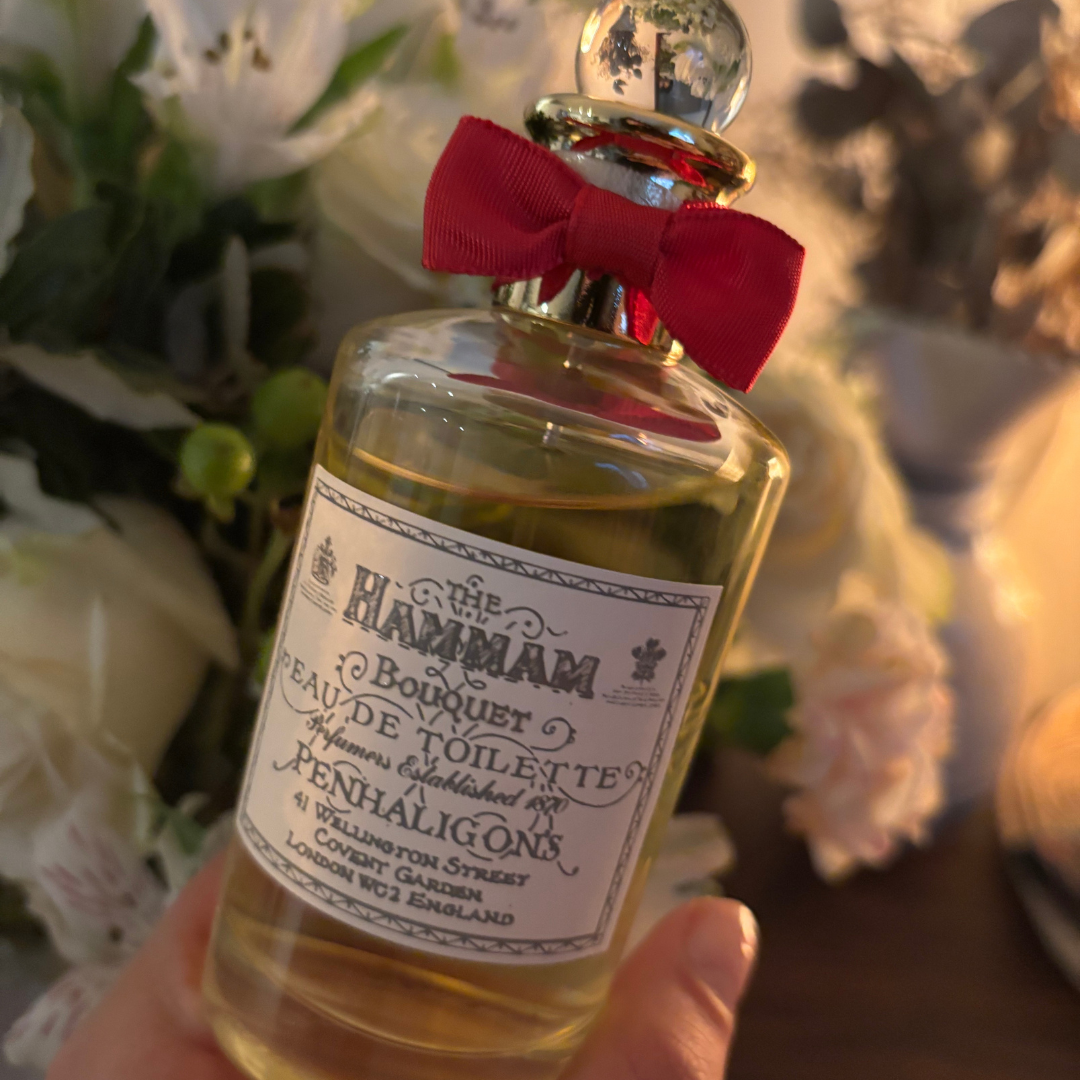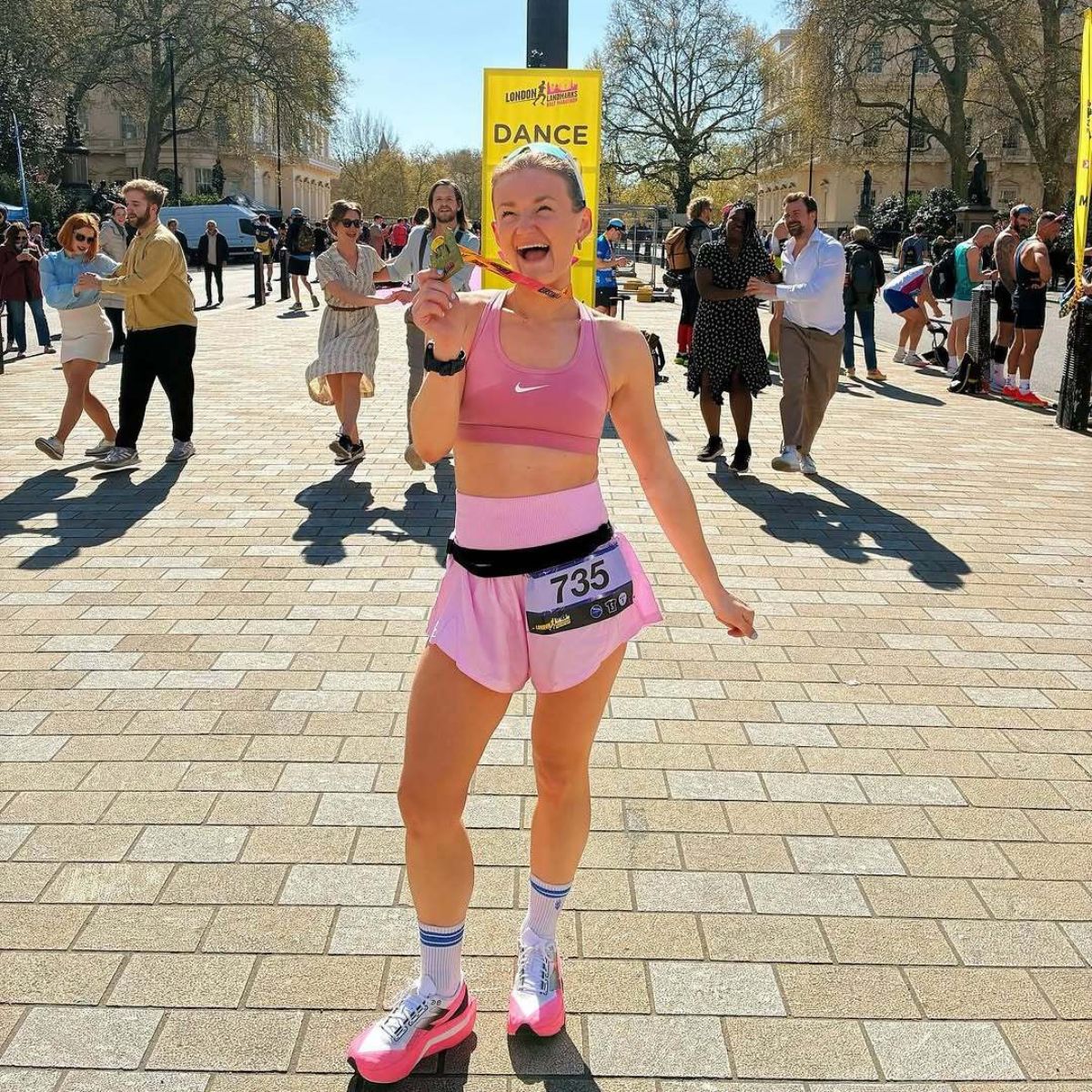What it feels like to go through early menopause at 35
Hot flushes, night sweats, an aching sense of loss. Nia Fisher explains how it feels to go through early menopause

Hot flushes, night sweats, an aching sense of loss. Nia Fisher explains how it feels to go through early menopause
It's a chilly winter night but I'm lying in bed sweating, unable to sleep. I’ve thrown my duvet aside and got rid of my pyjamas. I’ve spritzed myself with water and turned my fan up high, but the heat is still intense, rising from my midriff towards my head in pulsating waves.
When I first experienced this unsettling feeling, I didn’t know what was going on. Yes, I knew that night sweats were a symptom of menopause, but I thought that only happened to women in their fifties. I was just 35, single and not sexually active, so when I missed a few periods I thought it was odd, but put it down to stress. As an actress appearing in a West End musical, my work schedule was intense, my dad was having treatment for cancer and I was packing to move house.
I felt more emotional than usual, but it was the constant sweating that disturbed me, so eventually I went to see my GP, who recommended blood tests to measure my oestrogen levels and something called the follicle stimulating hormone (FSH) in my body. Oestrogen is the most important hormone for regulating your cycle and is essential for reproduction, while FSH helps oestrogen production, so it’s crucial for fertility. If your level is too high, it can be because your ovaries are struggling to produce oestrogen and the body is working overtime to correct this, indicating you’re approaching menopause.
While I waited for the results, I went to stay with my parents in Devon for a few days. It was August, and I can remember standing in the garden looking at their blooming flowers when the doctor called. It was bad news. My tests showed a low oestrogen count and a very high FSH count of 104. Just to put this in context, ‘normal’ FSH levels range from 3.5 to 11.5 with anything above 40 indicating that the ovaries are failing.
I stood in disbelief, trying to process what he’d said – that the results showed signs of early menopause. Surely, it was inconceivable that there was a possibility my body was failing me when I was a fit, healthy woman? By my age, my mother had given birth to three children. She didn’t go through the menopause until her early fifties, so there had been no suggestion that having children might be a problem. Now all I could think was that the choice to have my own biological children was being taken away from me.
Because of my young age, I was referred to an endocrinologist (a hormone specialist), who did some more blood tests to investigate what was happening to me. She told me I was perimenopausal, meaning my body had started making the transition towards menopause and my ovaries were beginning to produce less oestrogen. As well as regulating the cycle, this hormone helps control body temperature. This explained the hot flushes, night sweats and irregular periods.
Marie Claire Newsletter
Celebrity news, beauty, fashion advice, and fascinating features, delivered straight to your inbox!
Although the news was bleak, I could fall pregnant during perimenopause, because the body is still ovulating, so we talked about the possibility of freezing my eggs. The next stage was taking a anti-mullerian hormone (AMH) blood test to check the quality of my remaining eggs. It’s not available on the NHS, but most fertility clinics routinely offer it for around £100.
Five days later, I was told that my ovaries had failed and any eggs I did have left would be of too poor quality to conceive with. So that was it. After a torturous ten-month waiting game, during which time my best friend Claire became pregnant with her first child, I was diagnosed with premature ovarian failure, more commonly known as premature menopause.
One in every 100 women are defined as being menopausal before the age of 40. The symptoms are similar to the normal menopause, which the average woman experiences at 51 – hot flushes, night sweats, mood changes and low libido. But it doesn’t happen overnight; it’s a gradual process that usually takes between one and four years, but can take up to ten. It’s impossible to say how long it took for me, because I was obviously going through the process before I realised, but after 12 months of no period, you’re defined as menopausal.
After the endocrinologist delivered the final bombshell to me over the phone, I was numb with shock on the tube to work. When I reached the theatre, I turned around and went home. I just couldn’t face anyone. The best the doctors could do for me was help manage my menopausal symptoms, so I was put on hormone replacement therapy (HRT) and told I’d need to remain on it until my fifties. HRT replaces the oestrogen that is no longer naturally produced and, because oestrogen is essential for bone health and to ward off osteoporosis, it’s vital I keep topping up my levels until I’m at the usual age where it would start to drop off. Fortunately, the hot flushes had stopped by then, but my mood had been incredibly low and the HRT helped me cope with my hectic lifestyle a bit better.
Dealing with the emotional fallout of early menopause proved far more difficult than the physical symptoms. It isolated me from friends going through the usual milestones of their thirties – falling in love, settling down and getting pregnant. I remember holding Claire’s newborn baby when it arrived later that year and marvelling at the beauty of the moment, while inwardly grieving for the children I would never have.
Like many women in their thirties, I’d put off motherhood till later, waiting until I met someone I could picture having a family with, but suddenly that chance to have a baby was out of my hands. Seeing families on days out in London with young children left me feeling empty; it was hard going on Facebook with all the baby pictures, too. I went from being open and friendly to not wanting to be noticed. I avoided parties and wouldn’t make eye contact with men if I was out, so they didn’t approach me. I didn’t want to have to tell them I was flawed, an insufficient woman. I let those three little words, ‘premature ovarian failure’ define me.
Back at work, I had to deal with a heavy sadness that I just couldn’t shift. My body was still capable of dancing every night, but I felt I was only half a woman. It seemed so unfair that there was no explanation for what I was going through. Early menopause can run in families, but it can also be cruelly random, striking without warning. I watched as three cast members bloomed with fertility after announcing their pregnancies, and each time it was another reminder of everything that my body wasn’t capable of.
Being surrounded by young, attractive women day in, day out, in an industry that prizes youth and beauty, was agonising. I passed off my hot flushes as being hot from dancing, and left my dressing room to cry in the stairwell when things got on top of me. It may have been easier if there had been some external evidence of what I was going through, like wrinkles or grey hair, but, on the outside, nothing had changed.
Knowing I can’t have children has made me question who I am and my purpose in life. I’ve suffered anxiety and panic attacks, and was signed off work for one week last summer with stress. There were times when I felt like I was falling apart. But at last I am learning to accept my situation. I’m now having counselling and have started blogging about my experiences on thelotusnetwork.com, which has been hugely therapeutic for me. Sometimes it feels like society prizes youth and fertility over everything, but I’ve realised there are other journeys you can take as a woman. One day, I might meet a man I can adopt a child with. I have a niece, a nephew and beautiful godchildren. I love my career and have great friends.
Five years on from my first symptoms, I’m at the point where I don’t feel like premature menopause defines me any more. It’s always going to be sad, but I now remember the qualities I had before the diagnosis. For a while, I lost faith in myself. I forgot I can be creative, funny and attractive. Now, I give myself permission to embrace who I am. It’s been a challenge but, if anything, this has only made me stronger.
Premature menopause: The facts
Mr Etienne Horner, consultant obstetrician and gynaecologist at Imperial College Hospital, gives us the facts
• The average menopause age in the UK is 51. ‘Premature ovarian failure’ is defined as being menopausal before the age of 40 and affects one in 100 women. • The symptoms are the same as in normal menopause – irregular periods that finally stop, hot flushes, night sweats, vaginal dryness, low libido and mood changes. • If you don’t have a period for three months, see your GP to get your baseline follicle stimulating hormone (FSH), which is necessary for pregnancy, and oestrogen levels checked. • Although it is not available routinely on the NHS, most private fertility clinics can also do an anti-mullerian hormone (AMH) test to check your ovarian reserves or how many follicles you have left over in your ovaries – an indication of fertility levels. It costs between £60 and £150. • The best treatment, like the normal menopause, is to replace oestrogen with HRT via the skin in a gel or patch to limit side effects. • For information and support, visit thelotusnetwork.com, bica.net, the British Infertility Counselling Association, or daisynetwork.org.uk
For more support on premature menopause, visit thelotusnetwork.com or follow Nia on Twitter @nia_lotus
The leading destination for fashion, beauty, shopping and finger-on-the-pulse views on the latest issues. Marie Claire's travel content helps you delight in discovering new destinations around the globe, offering a unique – and sometimes unchartered – travel experience. From new hotel openings to the destinations tipped to take over our travel calendars, this iconic name has it covered.
-
 This perfume was created in 1892, and I wear it today—it’s musky, sexy and deserves a spot in your collection
This perfume was created in 1892, and I wear it today—it’s musky, sexy and deserves a spot in your collectionIt smells nearly identical, 153 years later
By Nessa Humayun
-
 Pink activewear is officially the must-wear trend of the season - 9 items our Health Editors can't stop wearing
Pink activewear is officially the must-wear trend of the season - 9 items our Health Editors can't stop wearingMake your workout even more fun with a pop of pink.
By Amelia Yeomans
-
 Butter yellow is the colour of the season—and experts have confirmed it looks chic on nails too
Butter yellow is the colour of the season—and experts have confirmed it looks chic on nails tooHere's how to choose the best shade for you
By Mica Ricketts